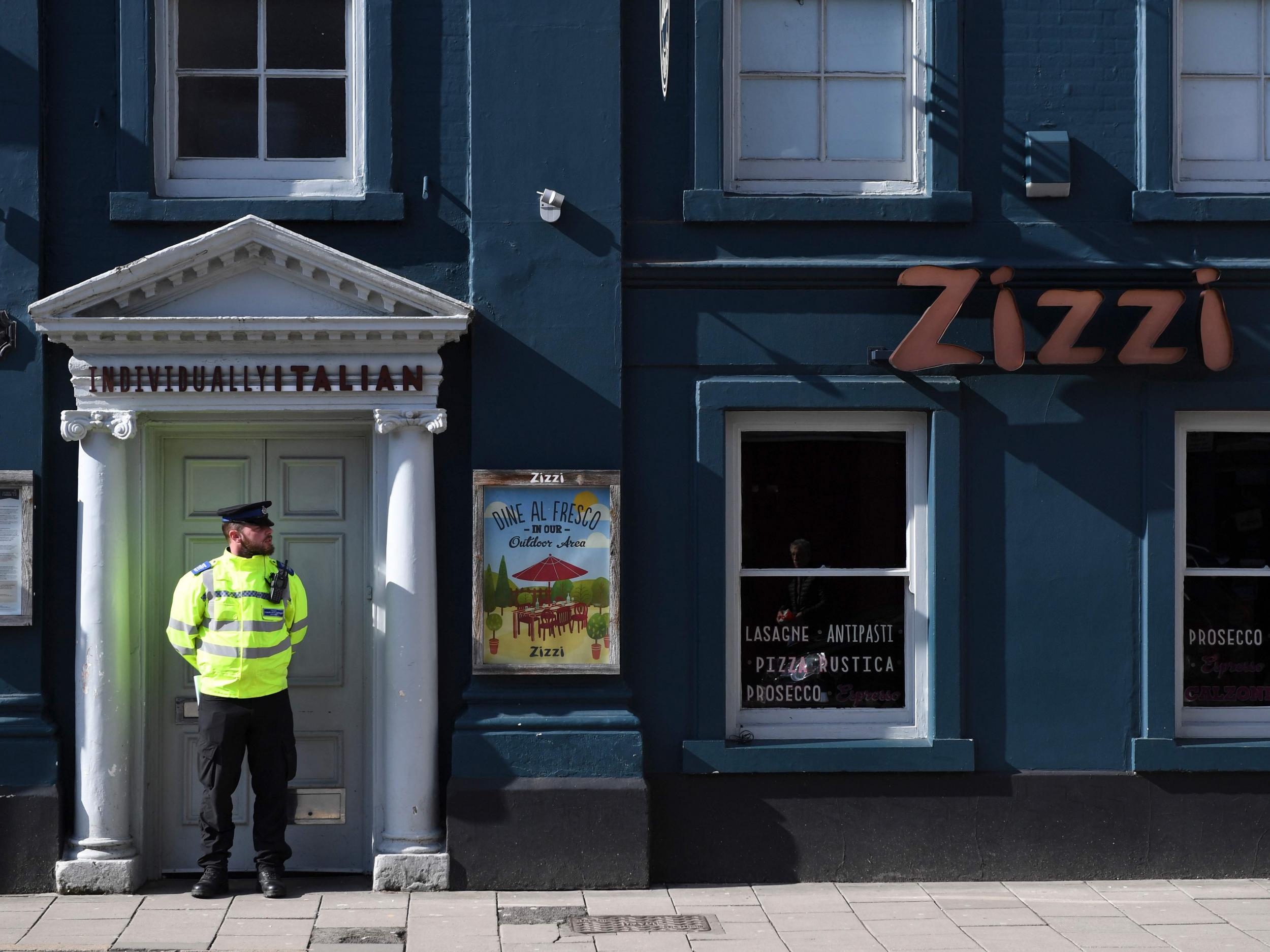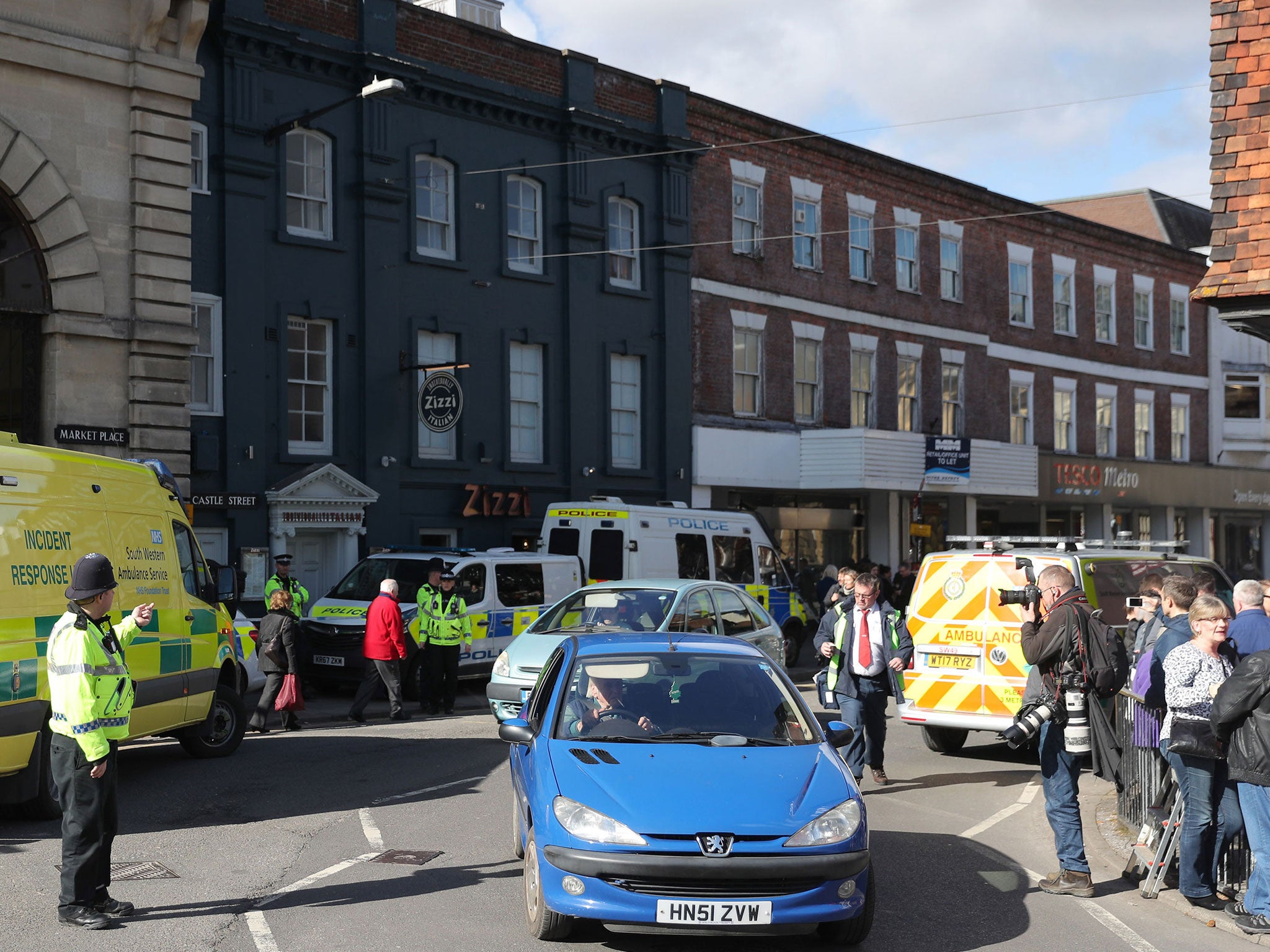Sergei Skripal: Security services hunting network of 'state-sponsored actors' over nerve agent attack
Exclusive: Lethality of nerve agents suggests use of a specialist laboratory, sources tell The Independent
Britain’s security services are hunting a network of highly-trained assassins suspected of launching a nerve agent attack on a Russian spy and his daughter, sources say.
The brutal and sophisticated method used to target Sergei Skripal and his daughter – which also left a police officer seriously ill – point towards “either present or past state-sponsored actors”, investigators have told The Independent.
Preliminary enquiries have focused on Mr Skripal, a former military intelligence colonel, as the intended target with his daughter seen as a collateral victim.
But the severity of the attack with the use of such a lethal ingredient showed a “quite staggering ruthlessness”, a Whitehall official said.
The police and security agencies have not revealed the type of nerve agent that left the victims critically ill.
A source said that it would not, technically, have been difficult to make but its lethality meant would almost certainly have needed a specialist laboratory to manufacture.
The sophistication is seen as another indication that the would-be assassins were likely to have had access to state resources, and extensively planned the attack.
A police officer who was among the first to help the pair as they slumped incapacitated on a bench in Salisbury is himself seriously ill and being treated in intensive care as the victims continue to fight for their lives.

Metropolitan Police Assistant Commissioner Mark Rowley, the outgoing head of national counter-terror policing, said: “This is being treated as a major incident involving attempted murder by administration of a nerve agent.
“These two people remain critically ill in hospital. Sadly, in addition a police officer who was one of the first to attend the scene in response to the incident is now also in a serious condition in hospital.
“Wiltshire Police are providing every support to his family.”
Police said the precise nerve agent used had been identified but declined to name it, while racing to work out how it was administered – and who by.
Investigators are working with specialists and scientists, including Public Health England, which said there was no risk to the wider public.
“We believe the two people who originally became unwell were targeted specifically”, Mr Rowley said.
“Our role now is to establish who is behind this and why they carried out the attack. To that end we have hundreds of detectives, forensic specialists, analysts and intelligence officers working around the clock on the case.”
They are examining CCTV and building a detailed timeline of events, while specialist officers in protective clothing continue investigations at cordoned off areas in Salisbury.

The work is expected to take several days, while police appeal for witnesses who were in and around the city centre on Sunday afternoon to come forward.
“It may be that at the time, nothing appeared out of place or untoward but with what you now know, you remember something that might be of significance”, Mr Rowley said in a direct appeal to local residents and visitors. “Your memory of that afternoon and your movements alone could help us with missing pieces of the investigation.”
Mr Skripal, 66, and his 33-year-old daughter, Yulia, were found unconscious on a bench in The Maltings shopping centre at about 4.15pm.
They had eaten at a nearby Zizzi restaurant and gone for a drink at The Mill pub. Both establishments are still behind a police cordon.
Chemical weapons experts told The Independent the nerve agent could have been administered in a variety of ways, including in their food or drink, or in the form of a spray or liquid.
Sarin has been used globally in both liquid and gas forms, while the even stronger nerve agent VX – developed in the British military’s secretive Porton Down facility – was used to assassinate Kim Jong-un’s half-brother last year.
Dr Patricia Lewis, research director for International Security at Chatham House, said VX, sarin and other nerve agents can be spread by contact.
“They have different routes into the body and each one has a different timeframe for the impact and a different lethality”, she told The Independent.
“It could have been in the food, it could have happened in the restaurant when they were surrounded by people, it’s possible that somebody went past them and wiped it on them.”
Sarin is part of the organophosphate chemical group, which has legitimate uses such as in sheep dip and weed killer, while VX is classed as a weapon of mass destruction.

Dr Jennifer Cole, an associate fellow at the Royal United Services Institute for Defence and Security Studies, said nerve agents “can be made fairly easily by somebody who knows what they’re doing”.
“You need to have some chemical knowledge but you don’t have to have much,” she added. “You need some kind of lab but not a sophisticated one.
“It’s something that it wouldn’t necessarily have to be state-level involvement and it certainly wouldn’t have to be smuggled across borders – that would be crazy when you can easily make it here unless they were making a political point.”
Dr Cole said that the police officer’s illness meant the nerve agent was more likely to have been administered by contact, rather than in food, meaning it would have been left on the Skripals’ skin or clothing.
Antidotes to several nerve agents do exist but their effectiveness relies on their being administered immediately to counteract the poisons’ rapid effect on the nervous system.
Symptoms include difficulty breathing, vomiting, convulsions, loss of consciousness, paralysis and eventual suffocation if the respiratory system shuts down.
Suspicion has turned to the Russian government, which jailed Mr Skripal for “treason” in 2006, or former spies he betrayed while working for MI6 during his time a colonel in the GRU military intelligence service.
He was given refuge in Britain after being exchanged in 2010 for Russian agents caught in the West as part of a Cold War-style swap in Vienna.
Mr Skripal appears to have lived a quiet life in a semi-detached home in Salisbury, where he lived with his wife before she died aged 59 in 2012.
But a former associate, Valery Morozov, said he believed Mr Skripal had not completely stepped away from his old life.
“Every month [he was] going to the Russian embassy to meet military intelligence officers”, he told Channel 4 News, claiming that the former double agent was keeping “dangerous” company and working in cyber security.
The Russian Embassy said they were not aware of any meetings.
Mr Skripal’s brother died in recent years and his son, Alexander, passed away suddenly aged 44 while in St Petersburg last year, leaving Yulia his only living child.
She had been visiting her father from her home in Russia, with CCTV showing him relaxed and smiling in a local shop five days before the poisoning.
Amber Rudd chaired a meeting of the Government’s emergency Cobra committee – which is convened over security threats and national crises – over the daylight attack.
“We’ve taken all the action necessary to ensure the public are safe and I’d like to reassure them”, she said.
Both the British and American governments have threatened to impose tougher sanctions on Russia if the Kremlin involvement in the assassination attempt is proved.
The Russian foreign ministry said allegations were being used to “whip up an anti-Russian campaign” in Britain and denied involvement by the country’s security services, amid comparisons to the assassination of former Russian spy Alexander Litvinenko.
He was poisoned using radioactive polonium put in a cup of tea in 2006 and accused Vladimir Putin of ordering the hit from his deathbed.
Bookmark popover
Removed from bookmarks